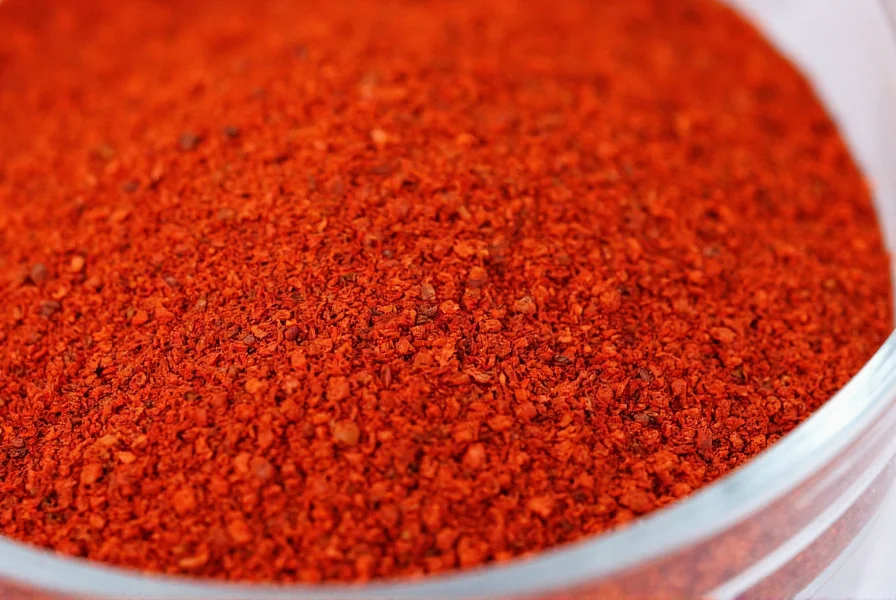Bulk crushed red pepper has become increasingly popular among both home cooks and professional kitchens seeking consistent quality and economic value. Unlike retail-sized containers found in grocery stores, bulk quantities offer significant savings per ounce while ensuring a steady supply of this versatile spice.
Understanding Bulk Crushed Red Pepper Composition
True bulk crushed red pepper consists primarily of dried and ground cayenne or similar hot chili peppers. The "crushed" designation indicates a coarser grind than powder, typically with particle sizes between 0.5-2mm. This texture provides both immediate heat release and visual appeal in finished dishes. When purchasing in bulk, check for consistent color (vibrant red), uniform particle size, and absence of stems or seeds which can indicate lower quality processing.

Culinary Applications and Measurement Guide
Chefs value bulk crushed red pepper for its versatility across multiple cuisines. The coarse texture delivers both immediate heat and gradual flavor infusion as it cooks. Unlike finer powders that can burn quickly, crushed flakes maintain integrity during extended cooking times. For precise usage:
| Measurement | Equivalent Heat Level | Best Culinary Applications |
|---|---|---|
| 1/8 teaspoon | Mild warmth | Salad dressings, marinades |
| 1/4 teaspoon | Moderate heat | Pizza, pasta sauces, roasted vegetables |
| 1/2 teaspoon | Significant heat | Meat rubs, chili, spicy soups |
| 1 teaspoon+ | Intense heat | Specialty hot sauces, extreme heat applications |
Storage Best Practices for Maximum Shelf Life
Proper storage determines how long your bulk crushed red pepper maintains peak flavor and heat. Exposure to light, heat, and moisture rapidly degrades quality. For optimal preservation:
- Transfer from original packaging to airtight glass or food-grade plastic containers
- Store in a cool, dark pantry (below 70°F/21°C) away from stoves or ovens
- Consider dividing large quantities into smaller working portions to minimize air exposure
- Add oxygen absorbers to containers for quantities stored longer than 6 months
When stored properly, bulk crushed red pepper maintains optimal quality for 18-24 months. After this period, while still safe to consume, the spice gradually loses potency and vibrant color. Check for musty odors or clumping which indicate moisture contamination.
Quality Considerations When Purchasing in Bulk
Not all bulk crushed red pepper offers equal quality. Professional buyers examine several factors before purchasing large quantities:
- Color consistency - Vibrant red indicates proper drying and freshness
- Particle uniformity - Consistent size ensures even heat distribution
- Moisture content - Should be below 10% to prevent mold growth
- Aroma intensity - Fresh product has sharp, clean chili scent
- Foreign material - Minimal stems, seeds, or non-chili components
Reputable suppliers provide certificates of analysis showing these quality metrics. For home users purchasing from retail bulk bins, check that the dispensers appear clean and well-maintained with high product turnover.
Economic Benefits of Bulk Purchasing
Buying crushed red pepper in bulk typically reduces cost per ounce by 30-50% compared to retail packaging. The break-even point for home users occurs at approximately 4 ounces of annual usage. Commercial kitchens using several pounds monthly realize substantial savings while ensuring consistent product quality across menu items. Consider your consumption rate before purchasing large quantities to avoid waste from degraded product.

Creative Culinary Applications Beyond Pizza
While commonly associated with pizza and Italian cuisine, bulk crushed red pepper enhances diverse dishes:
- Infuse olive oil by steeping flakes for 2-3 weeks
- Create compound butter for grilled meats and vegetables
- Add to chocolate desserts for subtle heat contrast
- Enhance Bloody Mary mixtures and cocktail rims
- Mix into dry rubs for barbecue and smoked meats
For balanced heat distribution in sauces and soups, add crushed red pepper early in the cooking process. For immediate heat and visual appeal, sprinkle as a finishing touch.
Substitution Guidelines and Measurement Equivalents
When substituting bulk crushed red pepper for other chili products:
- 1 teaspoon crushed red pepper = 1/2 teaspoon cayenne powder (adjust for heat preference)
- 1 teaspoon crushed red pepper = 2-3 fresh red chili peppers (seeded and minced)
- 1 teaspoon crushed red pepper = 1 tablespoon chili garlic sauce (for liquid applications)
Remember that heat levels vary between brands and harvests. Always start with less than you think you need, then adjust after cooking as the heat intensifies over time.
How long does bulk crushed red pepper stay fresh?
Properly stored in an airtight container away from light and heat, bulk crushed red pepper maintains peak quality for 18-24 months. After this period, it gradually loses potency but remains safe to consume indefinitely when stored correctly. Check for faded color, musty odor, or clumping which indicate degradation.
Can I freeze bulk crushed red pepper to extend shelf life?
Yes, freezing bulk crushed red pepper in an airtight container can extend its shelf life to 3-4 years. The key is preventing moisture exposure during storage and after removal from freezer. Allow the container to reach room temperature before opening to avoid condensation. Freezing preserves both color and heat intensity better than pantry storage alone.
What's the difference between crushed red pepper and red pepper flakes?
Crushed red pepper and red pepper flakes are essentially the same product with regional naming differences. Both refer to coarsely ground dried chili peppers. The term "crushed red pepper" is more common in commercial and bulk contexts, while "red pepper flakes" appears more frequently in retail packaging. Quality and heat level depend on the specific chili variety used, not the naming convention.
How can I test the heat level of bulk crushed red pepper before using it?
To test heat level, mix 1/4 teaspoon of crushed red pepper with 2 tablespoons of warm olive oil. Let steep for 10 minutes, then taste a small amount. This method reveals the actual heat intensity better than dry tasting, which can be misleading. Remember that heat perception varies by individual, so adjust recipes based on your specific tolerance.










 浙公网安备
33010002000092号
浙公网安备
33010002000092号 浙B2-20120091-4
浙B2-20120091-4